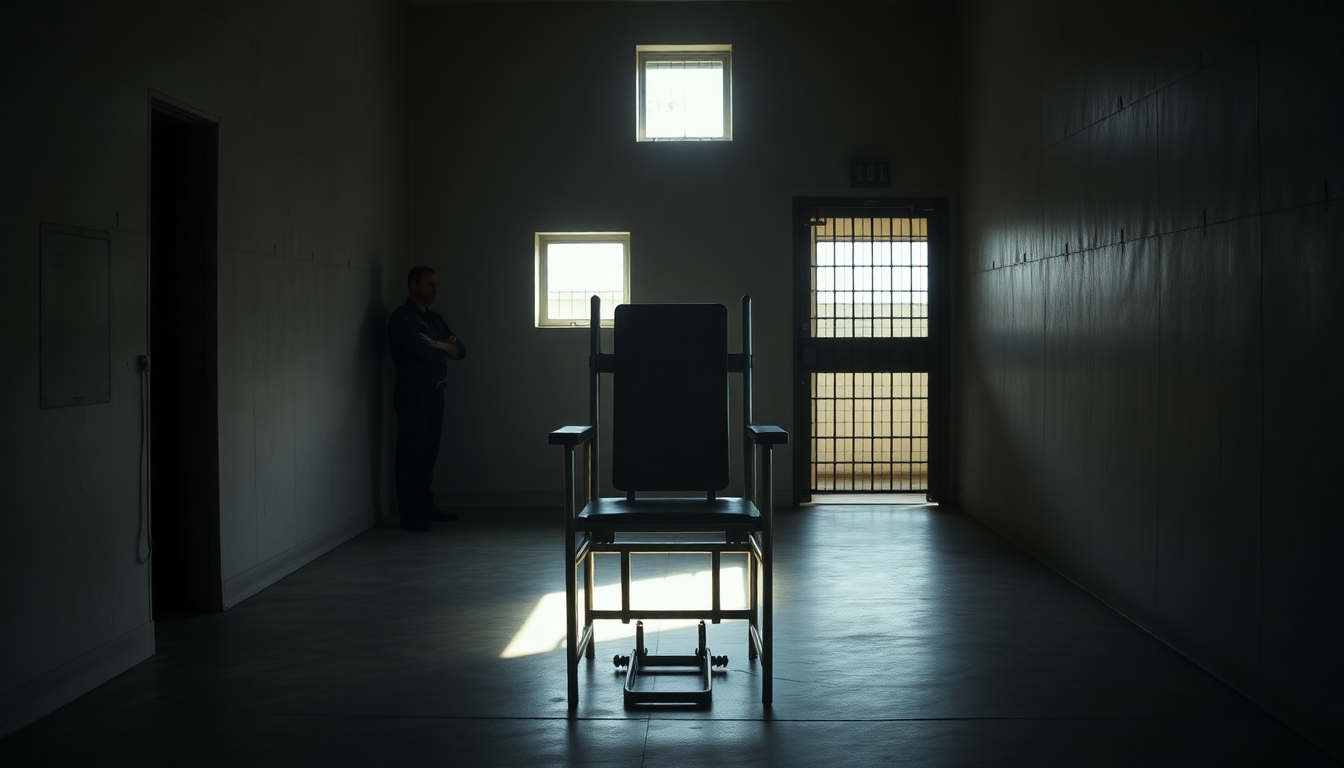Table of Contents
The impending execution of Kayle Bates, a man convicted of horrific crimes, is casting a spotlight on Florida’s evolving capital punishment landscape as we move through 2025. As Bates prepares for his lethal injection, this case not only tells a chilling individual story but also raises broader questions about the state’s approach to the death penalty.
With Florida leading the nation in executions this year, it’s essential to dive into the context and legal battles surrounding these cases. What does this mean for the future of capital punishment in the state?
Florida’s Death Penalty: A Record Year
This year, Florida has executed more individuals than any other state in the U.S., with Kayle Bates poised to become the tenth execution in 2025 alone. This number is striking, surpassing the previous record of eight executions in a single year, set back in 2014.
The state is witnessing a disturbing trend of increasing executions, with two more on the calendar for next month. Why is Florida seeing such a surge in capital punishment?
The revival of capital punishment in Florida can be attributed to various factors, such as legislative changes and shifts in public opinion.
Under Governor Ron DeSantis, the administration has adopted a staunch stance on maintaining and executing death sentences, solidifying Florida’s reputation as a leader in capital punishment. Yet, the legal processes surrounding these executions face constant scrutiny, prompting ethical questions about their fairness and application.
Are we witnessing a system that truly delivers justice?
Furthermore, the U.S. Supreme Court’s decision to reinstate the death penalty in 1976 opened the floodgates for states like Florida to refine their execution protocols. Court rulings have had a profound impact on the legal landscape, leading to periodic reevaluations of capital punishment laws and their application.
What role do these legal decisions play in shaping public perception of the death penalty?
The Case of Kayle Bates
Convicted for the brutal murder of Janet White in 1982, Kayle Bates’s case sent shockwaves through the community, emphasizing the severe repercussions of violent crime. Bates kidnapped White from her workplace, setting off a chain of horrifying events that ultimately led to her death. The gruesome details—ranging from attempted sexual assault to murder—have only amplified the severity of his sentence. How does a community cope with the aftermath of such violence?
Despite the gravity of his actions, Bates has persistently sought to appeal his conviction and death sentence on various grounds, including claims of insufficient consideration of mental health issues during his trial. However, these appeals have faced rejection, as the Florida Supreme Court argues that he had plenty of opportunities to present this evidence over the past thirty years. Is justice being served here, or are there flaws in the system?
The legal battles tied to execution cases often involve intricate statistical analyses and allegations of discrimination in the death penalty process. Bates’s legal team even filed a federal lawsuit claiming that the signing of death warrants by Governor DeSantis was discriminatory. Yet, a federal judge recently dismissed this lawsuit, suggesting that even if the statistical claims had merit, they did not necessarily illustrate bias. What does this mean for those facing capital sentences?
Implications and Trends in Florida’s Death Penalty
The ongoing executions, including that of Kayle Bates, reflect a significant trend within Florida’s criminal justice system. With 28 individuals executed nationwide in 2025, Florida’s aggressive stance on capital punishment raises pressing discussions about the moral and ethical implications of such actions. The upcoming executions of Curtis Windom and David Pittman further indicate that Florida’s execution calendar remains contentious. How does society reconcile the desire for justice with the potential for irreversible mistakes?
Critics of the death penalty argue that it disproportionately impacts marginalized communities and that the legal system is riddled with flaws that can lead to wrongful convictions. As public sentiment shifts, the conversation surrounding capital punishment continues to evolve, with advocates pushing for reforms and even the abolition of the death penalty. What will it take for a change in perspective?
Looking ahead, the future of capital punishment in Florida hangs in the balance. The legal landscape is ever-changing, and ongoing appeals like those from Bates could influence future practices. As states wrestle with the ethical complexities surrounding the death penalty, Florida’s actions are likely to remain a focal point in the national discussion on this critical issue. Are we moving toward a more just system, or are we trapped in a cycle of retribution?





